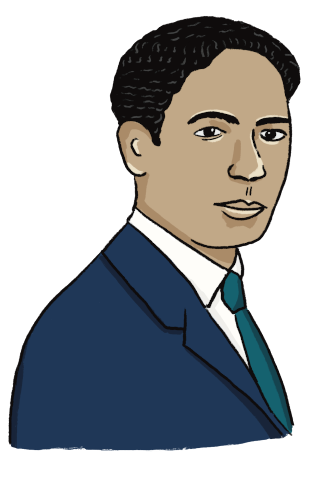
(December 25, 1886 – January 23, 1973)
Edward Ory was a trombonist, composer and bandleader. He was born near Laplace, Louisiana.
As a child, Kid Ory taught himself to play on homemade instruments, including the banjo. By his teens he had become a highly respected bandleader in Louisiana.
At the age of 21, in 1919 he moved to New Orleans with his band. He was soon noticed by the great cornettist Buddy Bolden who heard him playing a brand new trombone, instead of a beat-up old Civil War era instrument.
Ory had one of the best-known bands in New Orleans in the 1910s, which he co-led with King Oliver. They worked with many of the great jazz pioneers in New Orleans, including Johnny Dodds and Louis Armstrong.
In 1919, he moved to Los Angeles. While there, Ory and his band recorded two compositions, "Ory's Creole Trombone" and "Society Blues." They were the first jazz recordings made on the West Coast by an African American jazz band from New Orleans.
In 1925 Kid Ory moved to Chicago, following the tide of New Orleans musicians who did so. In Chicago he performed and recorded regularly with Louis Armstrong, Jelly Roll Morton, King Oliver, Johnny Dodds, Bessie Smith, Ma Rainey, and many others.
The seminal jazz group Louis Armstrong's Hot Five featured Kid Ory on Trombone. The band recorded his composition "Muskrat Ramble," a keystone recording in jazz history.
As well as his instrumental legacy, we mentored many great future jazz musicians while in Chicago, including clarinettist Benny Goodman and bassist Charles Mingus.
When he was growing up, Kid Ory played the banjo. His experience learning and playing this instrument had a big impact on his trombone playing. He developed a playing style called "tailgate," defining the instrumental role of the trombone by playing rhythmically in counterpoint to other frontline instruments.
Kid Ory also pioneered the use of the glissando on the trombone, which established the techique as a core element of New Orleans Jazz music. His use of the glissando had a big impact on early clarinet players such as Jimmy Noone and Johnny Dodds and as a result of this, on saxophonists, notably Johnny Hodges.